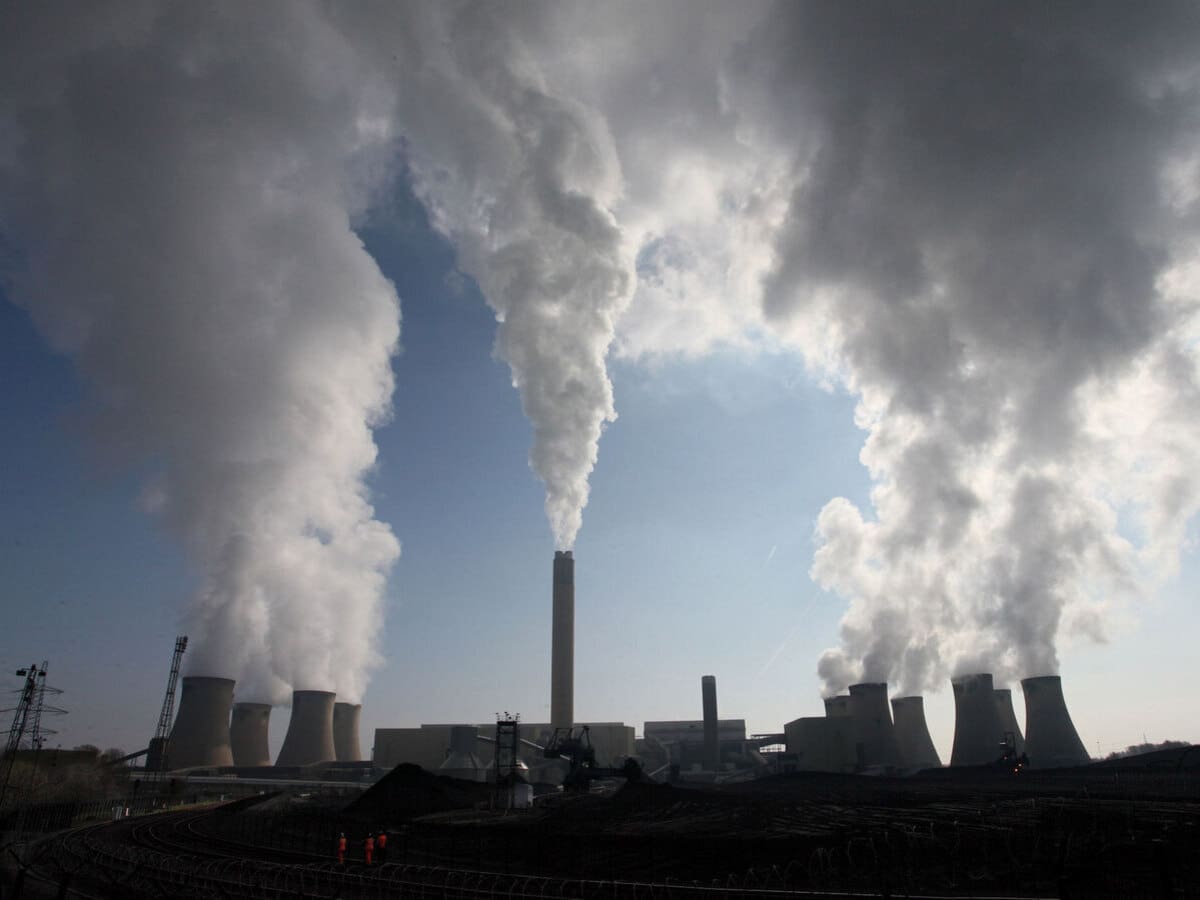Thursday 21 of March was the International Day of Forests. Naturally then, tree-burning bioenergy giant Drax marked the occasion by dropping its annual report.
On the very same day however, two non-profits published scathing new evidence against the company, to perfectly coincide with this shameless display of greenwashing. Once again, environmental groups caught the UK power station operator out. This time it was for sourcing wood from a Portuguese Nature reserve.
Then, the pièce de résistance: the same day, one of those non-profits also lodged a High Court challenge against the UK government over the company’s flagship power station. Notably, the legal action hits at the heart of a key plank in Drax’s greenwashing agenda.
Drax deforestation – at it again
On 21 March, environmental groups Biofuelwatch and Portuguese non-profit NGO ZERO published the results of a new video investigation. The pair revealed that Drax is sourcing wood pellets for its Yorkshire power plant from a nature reserve in Portugal.
More specifically, Drax is the biggest customer of Pinewells pellet plant in Portugal. Their investigation found that Pinewells has been sourcing trees from clearcuts in the mountainous Serra da Lousã nature reserve. The EU designated it a Natura 2000 site in 2008, under the EU Habitats Directive. Natura 2000 sites form an ecological network across Europe to protect wild animals, plants, and habitats of conservation importance.
To establish this, the non-profits’ investigators filmed on-the-ground, tracking the logging trucks as they entered the nature reserve.
The new revelations followed similarly damning allegations at the end of February. As the Canary reported, another non-profit investigation, as well as a BBC report, revealed that:
throughout 2023, Drax routinely sourced whole logs from logging Primary and Old Growth Forests, including from logging sites with a high proportion of 250-year-old Ancient Forest in Canada.
As they published these reports, the UK government concluded a consultation on new long-term subsidies for Drax and Lynemouth biomass power stations. It will now deliberate over the results and decide whether to put these subsidies into effect in 2027, to replace existing subsidies which are due to expire. As the Canary pointed out, both power plants burn wood pellets sourced from Drax’s mills in British Columbia (BC), Canada.
Now, these new revelations add fuel to the fire that these subsidies would pay Drax to enact more destruction in biodiverse and ecologically sensitive forests.
Co-director of Biofuelwatch Almuth Ernsting said:
Drax sourcing pellets from a company that has been using trees cut down in a Portuguese nature reserve is yet another example of the serious impact that their huge biomass power station has on forests in many different countries. We are appalled that the UK government is considering giving Drax yet more subsidies for this destructive business once existing subsidies end in 2027.
Ill-timed or intentional?
And so, the award for the most poorly timed annual report goes to Drax. On International Day of Forests 2024, Drax released its annual accounts.
Euphemistically titled Committed to the world’s energy transition, the document boasts a series of the company’s supposed environmental credentials.
Throughout, Drax has greenwashed its UK power plant operations in sections on its purported climate and nature “positive” impacts. Without a hint of irony, the bioenergy producer declared its aims to be:
a global leader in both sustainable biomass pellets and carbon removals, and to be a UK leader in dispatchable, renewable generation.
However, financial website This is Money poured cold water on this palpable contradiction, highlighting its hypocrisy:
Timing is, as they say, everything. So one has to wonder if Drax made the right call in releasing its annual report on the International Day of Forests.
In it, the power producer, which burns wood (known as ‘biomass’) at its Yorkshire plant, said it sourced 8 million tonnes of wood from around the world and burned 6 million in 2023.
None of that was to even mention that consistent analysis by climate thinktank Ember has singled Drax’s tree-burning power plant out as the country’s biggest emitter of climate-wrecking carbon pollution. Its 2023 research found that the power station had produced 12.1m tonnes of carbon emissions in 2022. Significantly, this was more than double the second largest emitter, making it worse than all the UK’s coal and gas-fired power stations.
Of course, its publication day was therefore either an astounding and blundering display of cognitive dissonance, or it was intentional. Given Drax’s history of green gaslighting – it’s fully conceivably the latter.
The public footing the bill
To furnish its climate credentials, Drax seeks to introduce carbon capture technology at its tree-burning Yorkshire biomass plant. In January, energy secretary Claire Countinho approved its plans for this project.
However, as thinktank Ember pointed out at the time, it’s the public who will foot the bill for the corporation’s expensive climate vanity project. It identified that the project could add £1.7bn to UK energy bills each year. Of course, this comes at a time when UK energy bills are already astronomically high and unaffordable, with energy companies pushing millions into fuel poverty.
Moreover, in its analysis of the project, Ember detailed how the carbon capture project could not guarantee genuine negative emissions. In particular, it noted that Drax’s claims of the carbon neutrality of its biomass is highly contentious. It explained that this is because:
Current regulations are not sufficient to prevent unsustainable and high-risk biomass feedstock from being burnt in UK power stations. For example, feedstocks from primary, high-carbon, highly biodiverse or slowgrowing forests.
Evidently, the recent investigations of Drax’s supply-chain operations in Canada and Portugal underscore this problem.
High Court challenge
So, off the back of International Day of Forests and all this, Biofuelwatch UK upped the ante against the serial greenwashing forest destroyer – taking the UK government to court for greenlighting Drax’s controversial project. On the 21 March, it announced that it will commence a High Court challenge.
Solicitors Leigh Day explained that the non-profit is taking legal action contending that the project fails to comply with UK Environmental Impact Assessment (EIA) requirements. Ostensibly, it accuses them of doing so on three key grounds:
- Drax’s claim that its biomass produces no greenhouse gas emissions.
- The company’s exclusion of carbon dioxide emissions from the carbon capture units to be fitted.
- And finally, failing to include greenhouse gas transport and storage facilities linked to the project in its EIA.
Carbon capture consent is “madness”
Biofuelwatch bioenergy campaigner Katy Brown therefore said that:
The Energy Secretary’s decision to accept Drax’s claim that its BECCS scheme will result in a net reduction in emissions is extremely dangerous and irresponsible given we are at a tipping point in the climate crisis. Cutting down trees and shipping them around the world to be burnt in power stations can never be a climate solution.
Drax is the single biggest carbon emitter in the UK. Its promise to capture and store this carbon uses a technology unproven with wood burning at this scale. Every large-scale coal and gas power plant equipped with Carbon Capture Storage has failed to meet its target for carbon capture performance.
It is irrational to think that Carbon Capture Storage on a wood burning power plant can be more successful.
Consenting to this madness means fossil fuel emissions will continue in the false expectation that they will be captured. Burning millions of tonnes of imported wood means continued devastation of the world’s forests with the associated impacts on animals, biodiversity and local communities.
BECCS diverts money and attention from genuine climate solutions such as wind, solar and insulation which would reduce carbon emissions to the atmosphere in the timescale needed – this decade.
Ultimately, the company’s environmental credentials are looking increasingly threadbare. Yet, the UK government continues to subsidise and greenlight distraction projects that allow Drax to plaster over its ecocidal activities.
Since it operates its operations with such unimpeded impunity, it’s no wonder the forest-destroying company put out its annual greenwashing accounts on a day reserved for forest awareness. However, there was some poetic justice in Biofuelwatch’s decision to escalate legal action the same day.
The non-profit showed that the climate and biodiversity justice community will not stand for its disgraceful greenwashing any longer.
Feature image via Andrew Whale/Wikimedia, cropped and resized to 1200 by 900, licensed under CC BY-SA 2.0




